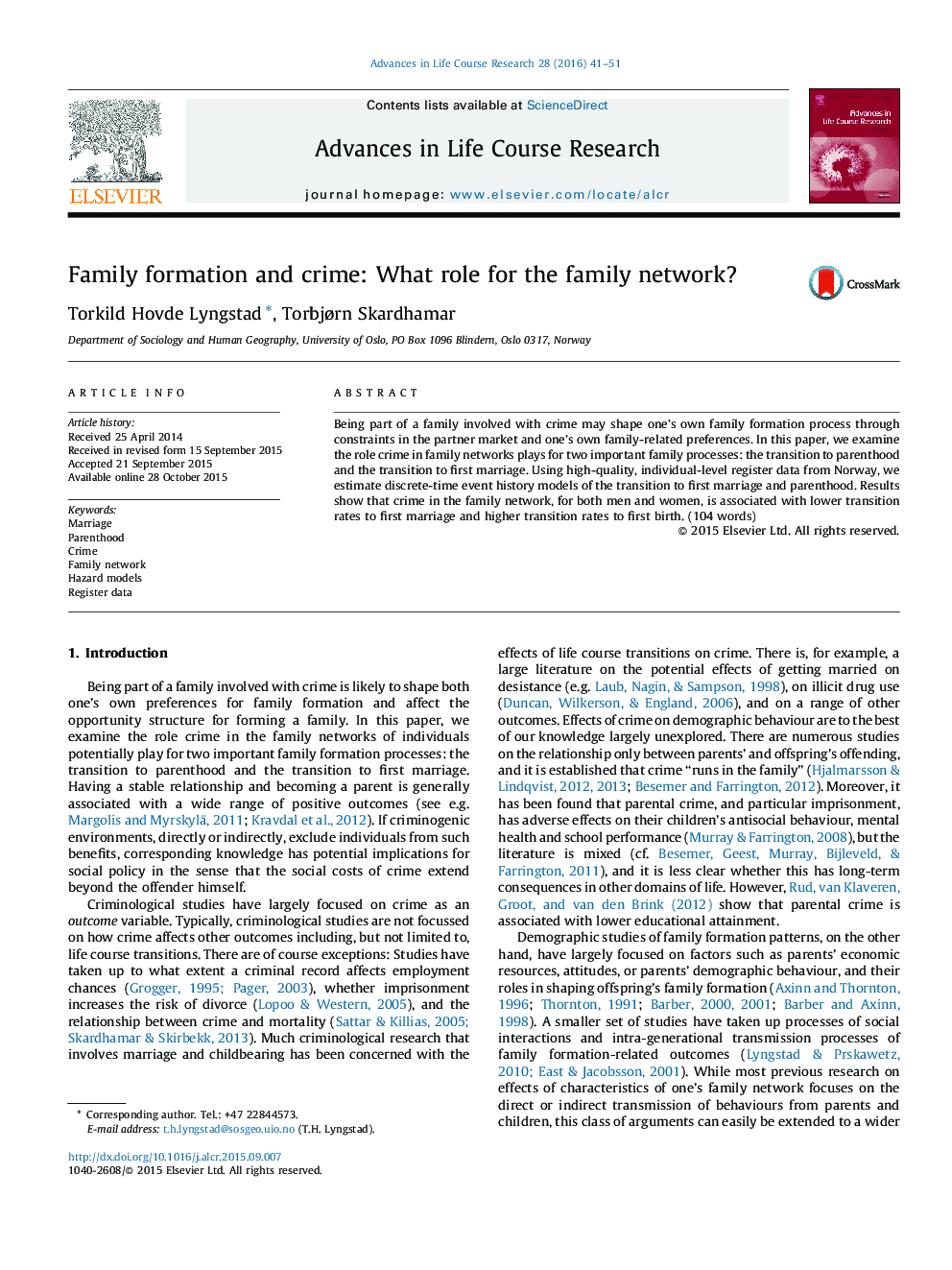| Article ID | Journal | Published Year | Pages | File Type |
|---|---|---|---|---|
| 313202 | Advances in Life Course Research | 2016 | 11 Pages |
Abstract
Being part of a family involved with crime may shape one's own family formation process through constraints in the partner market and one's own family-related preferences. In this paper, we examine the role crime in family networks plays for two important family processes: the transition to parenthood and the transition to first marriage. Using high-quality, individual-level register data from Norway, we estimate discrete-time event history models of the transition to first marriage and parenthood. Results show that crime in the family network, for both men and women, is associated with lower transition rates to first marriage and higher transition rates to first birth. (104 words)
Related Topics
Physical Sciences and Engineering
Mathematics
Statistics and Probability
Authors
Torkild Hovde Lyngstad, Torbjørn Skardhamar,
